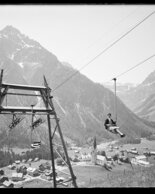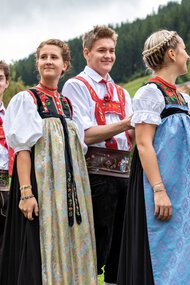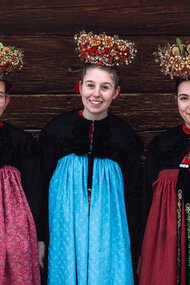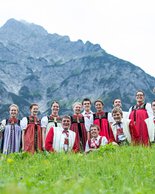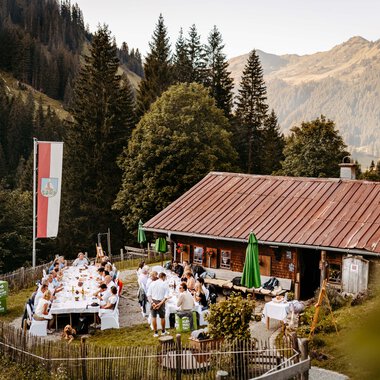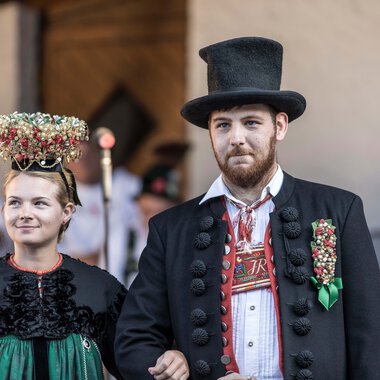The language - an old Walser heritage
26.03.2012

“Tradition-conscious” is probably the quality that best describes my father, a genuine Walser. “Spirited” suits my mother, a real Oberallgäu native. “Their” dialect was very important to both parents, which today probably explains the peculiar mix of my dialect, which cannot be attributed to one or the other origin. I often had to smile at the different ways my parents spoke, for example, my dad spoke about “hängera/ gmüatle/ ogschikt” and my mom about “huigarte/ diege/ gischplig,” (lively conversation/ cozy/ clumsy). With constant effort, my dad tried to teach my siblings and me the Walser dialect.
What proved to be quite fruitful with the older children unfortunately didn't have the hoped-for success with us younger ones. He had to admit to himself that his perseverance was not enough to really anchor my linguistic roots.
Dialect with a future?
In my youth, my homeland and the dialect associated with it were not very important to me. Today I regret this very much, because then I wouldn't have to look into the pained faces of some locals every now and then when I try to use what little dialect I have in a conversation. In those moments, I wish my dad had been more persistent to spare me these embarrassments.
The Walser dialect is difficult to understand and is similar to that spoken on the Hochtannberg, in Davos, in Valais and in Alsace. Linguists call it highest Alemannic.
Unfortunately, however, the Walser language is under threat or even disappearing (many people feel the same way as I do). Many locals recognize this problem and efforts are being made to use this language to preserve a valuable part of the Alpine way of life - and thus also the essential element of Walser culture - for the future.
However, it is nice to see that more and more “young Walser” are once again speaking their dialect with pride and hopefully passing it on to their descendants with love and passion. Several works dealing with dialect have been published. Characteristics of the highest Alemannic Walser language are the shift of the “s” to ‘sch’ (sie = schii, uns = önsch, ünsch or insch, Eis = lisch, böse = böösch) or the change from “-nk” to the softer “-ch” (trinken = triicha, denken = deicha). There are also a large number of special, mostly locally coined expressions.
Small reading sample
Wer chaa an liaba Gloggachlang so schriiba, wia n er chlengt?
On wer chaa schriiba mit dr Schrift, wia schöö an Amsel sengt?
Dees chaa bi aller liab kän Mänsch, deijch bloos a bitzle naa!
Ond wia mit Glogg ond Voogelsang
Isch s mit dr Walser Schpraach.
"Who can describe the beautiful sound of a bell?
And who can write how beautifully a blackbird sings?
With all due respect, no one can, just think a little!
And it's the same with the Walser language as with the bell and the birdsong."
Haberilla Wüstner-Linder

